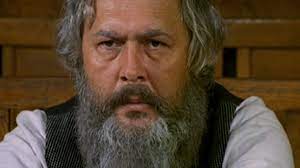
Ile Wzrostu Miał Jerzy Bińczycki – Born on September 6, 1937, in Witkowice, this Polish actor and director passed away on October 2, 1998, in Kraków. He had been a part of the Stary Theatre troupe for almost 30 years. One of the brightest lights of the Krakow scene, he left an indelible impression as Bogumi Niechcic in the filming of Nights and Days.
Biczycki received his diploma from the State Higher School of Theatre. Krakow, Poland, 1961, Ludwik Solski. After finishing college, he started acting with the Silesian Theater in Katowice. Swistunov in Mikhail Gogol’s The Inspector General, directed by Mieczyslaw Daszewski, was his first theatre role.
In addition, he appeared as lskie Jacek in Mickiewicz’s Forefathers’ Eve under the direction of Jerzy Kreczmar, Heini Zurmuhl in Friedrich Dürrenmatt’s Frank V, and Trojkin in Wodzimierz Mayakovsky’s ania under the direction of Jerzy Jarocki, and The Player in the Masquerade by Mikhail Ler He started working there at the Stary Theatre in 1965.
Acting alongside Konrad Swinarski and Jarocki, he played Jakub in Zygmunt Krasiski’s Nie-Divine Comedy and Edek in Sawomir Mroek’s Tango. Taking on these parts marked Biczycki’s debut as a successful actor in his new theatre. A little later, he played Jan in Ireneusz Iredyski’s Farewell Judas, under the direction of Swinarski, and Sister Angela in Eduardo Monet’s Mniszki,
under the direction of Jarocki. Having previously performed alongside Jarocki in 1970, he did so once more in 1971, this time in Witkacy’s Szewce under the stage name Journeyman II. Zygmunt Gre once remarked, “And it is a great delight to look at Biczycki.” For Edward in Tango, this actor plays a certain subset of the population:
those who have a hard time thinking and need to furrow their brows frequently while doing so. In Andrzej Wajda’s 1976 production of Mroek’s Emigrants, Biczycki played a figure quite similar to XX. According to the author, his work is “substantially near to the author’s vision” because of the way the character’s angular coating, expression, and complexity are all realised.
According to what Joseph Kelera penned. In 1975, Biczycki made his finest film. He portrayed Bogumi Niechcic in the film adaptation of Maria D. Brown’s novel Nights and Days. The actor had appeared in a number of films by that point, including Leap and Salt of the Black Earth by Kazimierz Kutz and Family Life by Krzysztof Zanussi.
He accomplished amazing work in the character of Bogumi in “Nights and Days,” realising an ideal of acting. While performing for an estimated tens of millions of people, he managed to make eye contact with a single viewer. Bogumi’s marital humiliations found new, surprising expression in the context of the fascinating mood of closeness he produced with his economical, intimate acting.
He skillfully revealed the unseen drama of Niechcic’s unrequited love: a guy who yearned for and was capable of intense love, but who was condemned to be ignored by Barbara, who clung to her idealised past. In The Quack, based on Tadeusz Doga-Mostowicz, directed by Jerzy Hoffman, Biczycki produced a similarly amazing effect as Professor Rafa Wilczur.
In addition, he displayed a nuanced acting technique in this film. The noble qualities of the character he portrayed were not diminished, and at the same time, he was able to portray a fully fleshed-out human being, rather than a fantasy. Spiritual maturity, a perspective on life and art in which everything is open to a logical and often benevolent evaluation,
has become a defining trait of Biczycki’s acting. This attitude carried through to Biczycki’s subsequent major performances on stage. “He gave a deeply felt performance as Tomasz Becket, using only the most essential techniques. Jarocki, adapting Thomas Stearns Eliot’s Bronisaw Mamo’s Murder in the Cathedral, described Biczycki as “huge, slow in motions, sparing in gestures,
Aktor Jerzy Biczycki, pochodzący z Polski, był weteranem sceny i ekranu (ur. 6 września 1937 w Witkowicach, zm. 2 października 1998 w Krakowie).
focused from the inside.” After the performance of Don Carlos by Fryderyk Schiller directed by Laco Adamik, Boena Winnicka remarked, “King Philip is performed by Jerzy Biczycki.” – There is no religious extremism about him, and he is not a brutal dictator. In this role, he portrays a despot, but he is a clever despot who puts the welfare of the state first.
He is a man of great seriousness, rationality, and spiritual maturity. Back in the 1980s, Biczycki gave a number of critically acclaimed performances in major classical parts. Other roles he played include Agamemnon in Zygmunt Hübner’s production of Aeschylus’ Oresteia, Basilio in Jarocki’s production of Calderon de la Barca’s Life is a Dream,
Terezjasz in Wajda’s renowned production of Antigone, and Polonius in Wajda’s Hamlet. At that time, he appeared on screen alongside other characters. The Magnat by Filip Bajon, Diary for My Loved Ones by Magda Meszaros, and Football Poker by Janusz Zaorski. In the 1990s, Biczycki played, among other roles,
Rzenicki in Tadeusz Bradecki’s production of Juliusz Sowacki’s Fantazy, Theater Director in So Called Humanity in Madness,and Lord in Jarocki’s By that time, the faithful audience that had followed Biczycki for decades on the Stary stage had come to see him as an acting authority and a genuine artistic treasure.
The first time he appeared on stage as Pandesovna in Jan Potocki and Bradecki’s staging of The Saragossa Manuscript, the audience praised him. According to Jacek Sieradzki: “It’s me,” he shouts happily while perched on a wardrobe and gesturing with one hand to a young boy running by who is ostensibly him.
The crowd, amused, cheers for him, but not the Saragossa Manuscript’s protagonist. Awards were given to him in 1971 for his performances as Jan in Ireneusz Iredyski’s Farewell, Judas, directed by Konrad Swinarski at the Stary Theater in Kraków, at the Festival of Polish Contemporary Plays in Wrocaw, and as Fano in Pavel Landovsky’s Room for the Hours,
directed by Romana Próchnicka at the Stary Theater in Kraków, at the 1st Festival of Arts of Socialist Countries Honored at the 12th Annual Kalisz Theater Meetings in 1972 for his performance Fano in Pavel Landovsky’s Room for Hours at the Stary Theater in Krakow under the direction of Romana Próchnicka., a Pan w Jarockim W tym czasie wierna publiczność,
która przez dziesięciolecia śledziła Biczyckiego na Starej Scenie, zaczęła widzieć w nim aktorski autorytet i prawdziwy artystyczny skarb. Gdy po raz pierwszy pojawił się na scenie jako Pandesovna w inscenizacji Rękopisu znalezionego w Saragossie Jana Potockiego i Bradeckiego, publiczność go zachwalała.
Według Jacka Sieradzkiego: „To ja”, krzyczy radośnie, siedząc na szafie i wskazując ręką na biegnącego chłopca, który rzekomo jest nim. Rozbawiony tłum wiwatuje mu, ale nie bohaterowi Rękopisu znalezionego w Saragossie. Nagrodę otrzymał w 1971 za role Jana w Pożegnaniu, Judaszu Ireneusza Iredyskiego w reżyserii Konrada Swinarskiego w Starym Teatrze w Krakowie,
na Festiwalu Polskich Sztuk Współczesnych we Wrocławiu oraz jako Fano w Pokoju na godziny Pawła Landowskiego w reżyserii Romany Próchnickiej w Starym Teatrze w Krakowie na I Festiwalu Sztuki Krajów Socjalistycznych Wyróżniony na XII Kaliskich Spotkaniach Teatralnych w 1972 roku za spektakl Fano w Pokoju godzinnym Pawła Landowskiego w Starym Teatrze w Krakowie pod dyr. Romany Próchnickiej.

